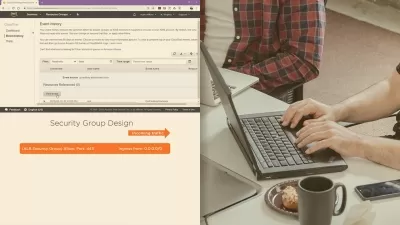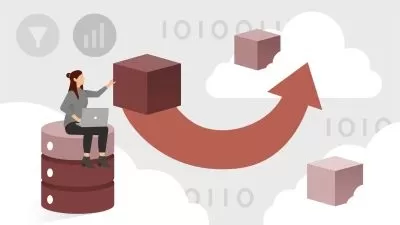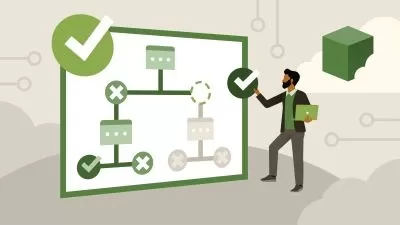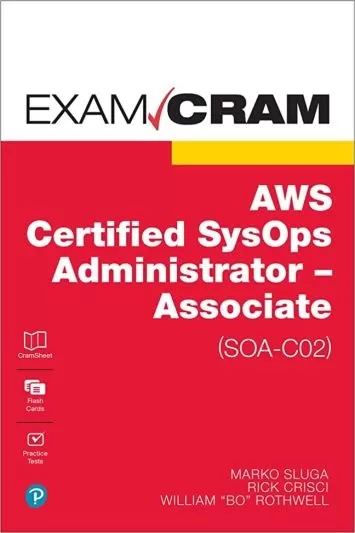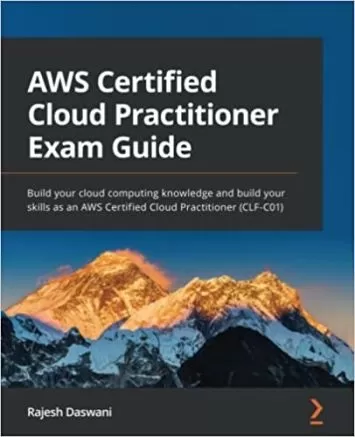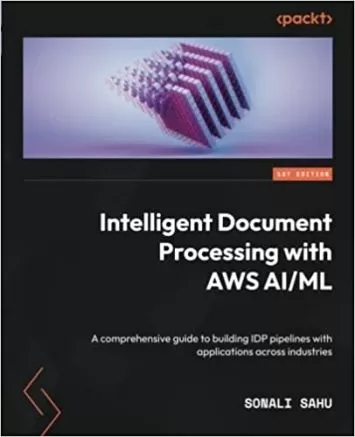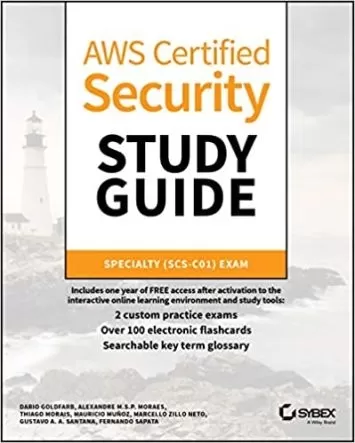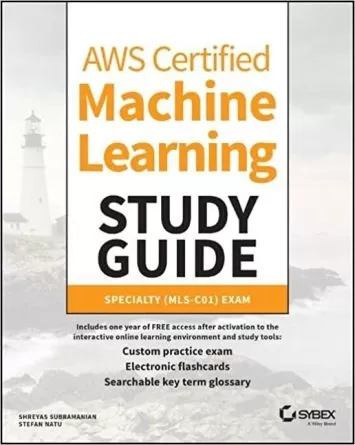About AWS CertificationLearn More
Prep for your AWS certification with an AWS course on Udemy. Learn the fundamentals of AWS such as working with a serverless platform, the various frameworks, security and more. With these courses, you’ll build the valuable skills you need to implement cloud initiatives — and open up new career opportunities. If you want to become an AWS developer, we’ve got the course for you.
Sort by:
Sorting
The newest
Most visited
Course time
Subtitle
Filtering
Courses
Subtitle
![AWS Certified Advanced Networking Specialty Course [ANS-CO1]](https://traininghub.ir/image/course_pic/9698-x225.webp)
Udemy


Neal Davis | AWS Certified Solutions Architect & Developer
AWS Certified Advanced Networking Specialty Course [ANS-CO1] 11:03:04
English subtitles
04/04/2023
Books
Frequently asked questions about AWS Certification
AWS stands for Amazon Web Services, which is a cloud platform owned by Amazon and hosted across its global data centers. AWS Certification is a credential that Amazon awards to you after passing an exam that validates your AWS Cloud knowledge, technical skills, and expertise. AWS provides the credential in a digital badge and title format so that you may use it on your business cards and other professional collateral to designate yourself as AWS Certified. AWS Certification is open to candidates over age 18 and those between the ages of 13-17 with their parent or legal guardian's consent. Candidates must be at least 13 years of age at the time of scheduling an exam. You can schedule an exam using either an online proctoring testing environment or at a testing center facility. Exams are offered by Pearson VUE and PSI, both of which are test delivery providers that deliver AWS certification exams globally.
Due to the complexity of the exam content and recommended experience to successfully pass exams and obtain certifications, people might consider AWS Certifications difficult. AWS recommends that candidates have a minimum of six months of experience with AWS to take the Foundational (first-level certification) exam. While exam difficulty depends on your experience and type of certification course, you can plan on spending 80-120 hours practicing and studying for your AWS exam. Some of the exams include scenario-based questions that can be challenging for certification candidates. Specialty exams include detailed technical information and are often considered the most difficult types of AWS Certification. To help prepare for exams, you can use AWS exam preparation resources (which includes AWS whitepapers) and watch Amazon’s complimentary AWS Certification exam preparation webinars. You can also leverage Udemy courses and practice exams and opt for AWS training services.
The time it takes to become AWS certified depends on the type of certification, your experience, and the time you spend practicing and studying for the exam. If you follow the recommendations, certifications start with at least six months of experience. AWS recommends a minimum of six months of fundamental AWS Cloud and industry knowledge for the Foundational (first-level certification) exam. Its Associate certification requires a minimum of one year of experience solving problems and implementing solutions using the AWS Cloud. Its Professional certification states that it requires two years of comprehensive experience designing, operating, and troubleshooting solutions using the AWS Cloud. AWS does not list time requirements for Specialty certifications, but you can plan on spending 80-120 hours practicing and studying for each AWS exam.
AWS offers four different types of AWS Certifications: Foundational, Professional, Associate, and Specialty. Foundational only includes the Cloud Practitioner exam, which requires six months of fundamental AWS Cloud and industry knowledge. Professional and Associate are role-based certifications that are for those in Architect, Developer, and Operations roles. Associate certifications require one year of experience solving problems and implementing solutions using the AWS Cloud. Associate certifications include Solutions Architect, SysOps Administrator, and Developer. Professional certifications require two years of comprehensive experience designing, operating, and troubleshooting solutions using the AWS Cloud. Professional certifications include Solutions Architect and DevOps Engineer. Specialty certifications focus on specific technical areas, and they include Advanced Networking, Security, Machine Learning, Alexa Skill Builder, Data Analytics, and Database certifications.
AWS supports multiple popular programming languages like Java, JavaScript, C# and .net framework, PHP, Python, and Ruby. Programming language SDKs include Go and C++. You can use the SDK for Python to build applications on top of Amazon S3, Amazon EC2, Amazon DynamoDB, and more. You can use Ruby to deploy applications on AWS services like Amazon S3, Amazon EC2, DynamoDB, and more. You can integrate your PHP application with AWS services like Amazon S3, Amazon Glacier, and Amazon DynamoDB. There are no mandatory training or exam requirements to take an AWS Certification exam. Training is recommended as part of your certification preparation, but it is not mandatory for the completion of the certification. AWS Certification does not publish a list of all services and/or features that are covered in a certification exam. However, the exam guide for each exam does list the current topic areas and objectives covered in the exam.
Organizations using AWS span across multiple industries and business sizes, so those with AWS Certifications have plenty of career options to choose from. This includes startups, enterprises, the public sector, the military, and global banks. Global cloud-based products also present options in computing, storage, databases, analytics, networking, mobile, developer tools, management tools, IoT, security, and enterprise application. Other jobs that use AWS workloads can be found in web and mobile applications, game development, data processing and warehousing, and storage and archive. You can also use your certification to join the AWS Partner Network (APN). The APN includes systems integrators and independent software vendors (ISVs). You can work for one of the thousands of systems integrators within this group who specialize in AWS services. You can also work as a part of the tens of thousands of ISVs that adapt their technology to work on AWS.
If you fail an AWS Certification exam, you forfeit exam registration fees. You will have to pay the full registration fee if you decide to retake the exam. While there is no limit on exam attempts, when you fail to pass an exam, you must wait 14 days before you are eligible to retake it. Beta exam test takers are eligible for one attempt only. Training is recommended as part of your certification preparation, but it is not mandatory for the completion of the certification. Therefore, if you need to retake an exam, you can use Udemy courses to study before retaking exams. You can plan on spending 80-120 hours practicing and studying for each AWS exam. Udemy offers a variety of AWS Certification courses. You can also use tools such as AWS exam preparation resources (which includes AWS whitepapers) and watch Amazon’s complimentary AWS Certification exam preparation webinars.
One of the most popular alternatives to an AWS Certification is a Microsoft Azure certification path. Microsoft Azure offers 12 different exams, all grouped by a role-based structure like Fundamental, Associate, and Expert. Another option is the Google Cloud Platform, which is known for its multi-cloud deployment integration solutions. This one offers eight certifications, split between Associate and Professional categories. Lastly, SnowPro Certifications is also a viable choice to showcase your expertise in cloud computing. Available through Snowflake, a global cloud data platform company headquartered in Silicon Valley, SnowPro Certifications include the SnowPro Core Certification and SnowPro Advanced: Architect. Whatever you decide to get your certification in, you'll want to prepare for the exams. Udemy's courses are great study material to help you ace the test.





